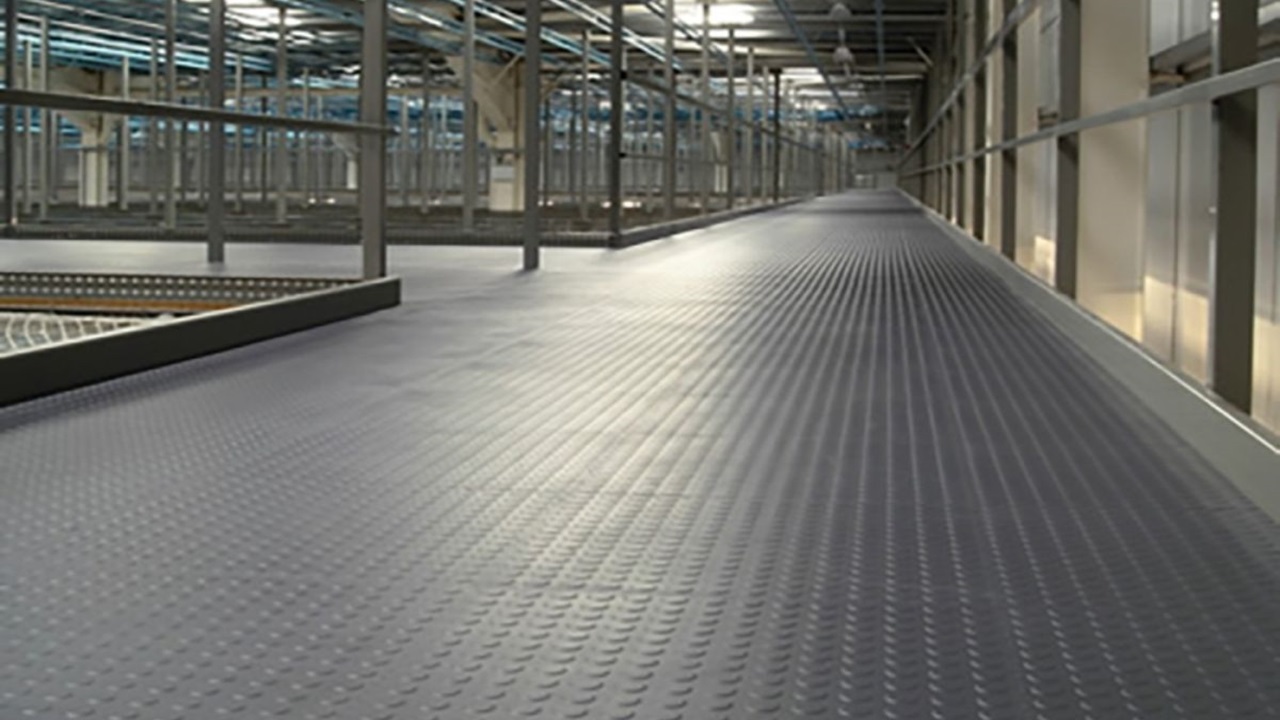Metal flooring panels are commonly applied in industrial buildings because of their high resistance and durability. Built to be capable of handling high weights, vibrations, and direct forces, these panels will provide high-level performance in conditions where it matters most. Due to their stability to mechanical stress, they find application in various areas of manufacturing industries, automobile industries, chemical industries, godowns, etc. This article also focuses on the factors that affect the effectiveness and the shock resistance of the steel flooring panels, the advantages observed and relevant factors to bear in mind while choosing them.
Factors Contributing to Impact and Shock Resistance
Material Type
Depending on the kind of material used in the manufacture of the metal flooring panels, it is able shockproof and impact-proof. The most often used materials are stainless steel, galvanized steel, and carbon steel with each possessing certain advantages. Stainless steel panels are usually used where there is a problem of corrosion and where there is likely to be a lot of wear and tear. Galv. Steel panels refer to the use of steel panels that have an extra layer of zinc which reduces the rate of abrasion and rusting. Carbon steel is more prized for its hardiness and low price, especially for equipment that will be used intensively in industries.
Thickness of the Panels
The thickness of the metal flooring panels is an essential factor determinative of their shock and impact characteristics. Greater panel thickness is preferred because thickness is proportional to strength and the panels are less likely to deform under load. For that environment where there is intense use of mechanical apparatus such as mechanical equipment or even machinery, panels with a thickness of not less than 2.0mm are advised. The additional variety of thickness can be 2.5mm which will enhance the resistance even more and is appropriate for those spots where high-impact actions are often conducted.
Surface Design
Areas that may be utilized to improve and or increase the impact tolerance of metal flooring panels are surface designing such as textured or patterned surfaces. Even though raised patterns such as diamond plating or tread patterns serve the sole purpose of providing additional traction, they also spread out the force of impact over a wider area preventing the development of point-specific damage. The metal panels with holes drilled all over the surface also provide another advantage; they can afford to surrender some of their area to shock absorption by flexing a little when squeezed to avoid cracking.
Benefits of Impact and Shock Resistant Metal Flooring Panels
Enhanced Safety
An advantage that is highly comparable to employee protection is the ability to employ impact and shock-resistant metal flooring panels. In areas where there are large items that may drop or equipment that is often shifted, the durability of these panels ensures that they do not crack, dent, or in any other way develop on the floor and become a tripping hazard. This also provides a longer service duration as well as keeps its ground flat and even and this /reduces the probability of any unfortunate occurrences like slips and falls.
Longevity and Cost Efficiency
Non-shock and impact-resistant metal flooring panels are less likely to need replacement or maintenance as often as other types of flooring. This has considerably decreased the costs commonly incurred when maintaining floors for several years. Building owners and managers can save costs associated with frequent repairs and in productive time because such floors can withstand hard traffic. In addition, the long life span of the metal panels makes them more economically sustainable since it does not require so many scarce materials such as screws to replace frequently unlike other building materials.
Designed for High Impact Use
Metal flooring panels are perfect for automotive industries, metalworking industries, and industries that store heavy equipment that may cause impact damage. Their wearability makes them effective and safe for use in areas that have high traffic that causes demands on the floor. This makes them a practical solution to any kind of facility that holds value on the durability of the equipment.
Selecting the Right Metal Flooring Panels for Impact Resistance
The selection of metal flooring panels depends on the needs of the environment in which they are to be installed. If an area is to be used where there is a constant chance of chemicals coming into contact with the panels or where humidity is high then stainless steel panels will be most appropriate because they do not corrode. Given the complexity of the assembly of these skins in space, carbon steel panels provide a cheap solution while maintaining sufficient stiffness. For places where rust prevention is required but the money is a problem, galvanized steel is the best option.
Conclusion
Metal flooring panels are ideal for many industrial applications because of their ability to absorb impact and shocks. They are used because of their long life, safety gains, and relatively low cost. When choosing metal flooring panels, the material, the thickness of the panel, its surface, and the ability to bear high loads during usage need to be determined to allow the flooring to perform its best in areas with high traffic. Considering the type of panels to install allows for safety, decreased costs of maintenance, and durability thus providing a robust flooring system ideal for an industrial environment.


